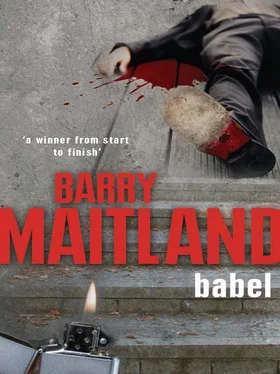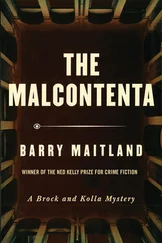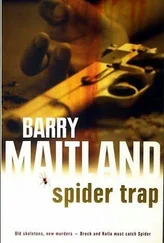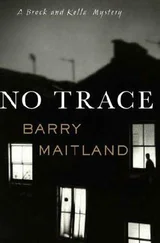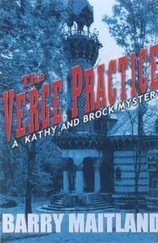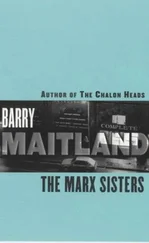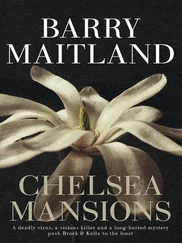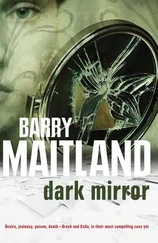Barry Maitland - Babel
Здесь есть возможность читать онлайн «Barry Maitland - Babel» весь текст электронной книги совершенно бесплатно (целиком полную версию без сокращений). В некоторых случаях можно слушать аудио, скачать через торрент в формате fb2 и присутствует краткое содержание. Жанр: Полицейский детектив, на английском языке. Описание произведения, (предисловие) а так же отзывы посетителей доступны на портале библиотеки ЛибКат.
- Название:Babel
- Автор:
- Жанр:
- Год:неизвестен
- ISBN:нет данных
- Рейтинг книги:5 / 5. Голосов: 1
-
Избранное:Добавить в избранное
- Отзывы:
-
Ваша оценка:
- 100
- 1
- 2
- 3
- 4
- 5
Babel: краткое содержание, описание и аннотация
Предлагаем к чтению аннотацию, описание, краткое содержание или предисловие (зависит от того, что написал сам автор книги «Babel»). Если вы не нашли необходимую информацию о книге — напишите в комментариях, мы постараемся отыскать её.
Babel — читать онлайн бесплатно полную книгу (весь текст) целиком
Ниже представлен текст книги, разбитый по страницам. Система сохранения места последней прочитанной страницы, позволяет с удобством читать онлайн бесплатно книгу «Babel», без необходимости каждый раз заново искать на чём Вы остановились. Поставьте закладку, и сможете в любой момент перейти на страницу, на которой закончили чтение.
Интервал:
Закладка:
‘Then I don’t think he could have understood a word of it. It’s a highly technical report, not written for the layman, or even for publication in a scientific journal. It’s very specific to the discipline. More likely Springer got wind of the same misleading rumours that I’d heard, thought “no smoke without fire” and tried to fan the flames.’
Brock called a team conference later that day and they discussed their options. Bren was all for persisting with Haygill or failing that Darr, but, in the absence of any evidence of the source of Abu’s money, it became clear that he was in a minority. Brock reported to Superintendent Russell that evening with his recommendation that Abu Khadra had acted alone, out of misguided loyalty, and without the knowledge of Richard Haygill. He also recommended that no charges be brought against Haygill for attempting to hide the murder weapon, in view of the fact that his wife had disclosed its whereabouts.
Russell read the single sheet of recommendations, then eyed Brock shrewdly. ‘You’re not satisfied, are you?’
‘Is it that obvious?’
Russell smiled. ‘What’s bothering you?’
‘Well, the money… But more than that… intangibles. The way Springer was murdered, so public, so theatrical. It doesn’t seem to fit Khadra’s purpose, or his character. Why not do it in some dark lane, miles away from the university, where there’d be nothing to immediately connect it with university politics?’
‘But isn’t that the way of the fanatic, Brock, to make a big public statement? To teach people a lesson? And Khadra was a fanatic, wasn’t he? That passage in the Qur’an he left for you as good as said it.’
Brock shrugged.
‘A negative result always seems less satisfactory, Brock, I know, but it is a result, nevertheless. I’m satisfied you couldn’t come to any other conclusion. I’m sure the Crown Prosecution Service wouldn’t support us pressing any further charges on the basis of what we’ve come up with.’
The following morning they gave a press conference at which they stated that the police had completed their investigations into the murder of Max Springer, and no further charges were being considered. This was widely reported in the news media that evening and on the following, Thursday, morning, when the Herald also carried an interview with Professor Roderick Young expressing his own and the university’s complete confidence in Professor Richard Haygill and the hope that the tragic events of the previous weeks could now be laid to rest.
On Friday morning, while the team was dismantling the room they had been using for the Springer inquiry, Dot brought in a letter for Brock. It had been marked ‘Personal’ and addressed to him at New Scotland Yard. Inside he found a green printed pamphlet with an illustration of a clenched fist and a message in Arabic and English. ‘Ruined are the liars who flounder about in ignorance. They ask: When will the Day of Judgement be? It will be on the day when they are afflicted with the Fire, and are told: Suffer your torment.’
Sura 51: 9
It caused a stir of concern, which Brock promptly dismissed. It was probably the tearaway Ahmed Sharif, not letting the opportunity for a bit of tub-thumping pass, he said. And in a way it seemed a rather appropriate footnote to the whole sorry business, which had begun with just such a letter to Max Springer.
They had a bit of a laugh about it in the office. Bren’s theory was that it had been sent by the Inland Revenue. But Kathy didn’t laugh. She remembered Leon’s warning about Darr and the Iraqis, and when she could get Brock on his own she said as much to him. He shrugged, an impassive, untroubled look on his face, and told her not to worry.
22
B rock woke suddenly, starting from the armchair in which he’d nodded off. A sound had woken him. He heard the plaintive horn of a train passing through the fog-bound cutting beyond his window, the bang of a fogwarning cap on the line. The warmth of the gas fire, the whisky at his elbow, the heavy book he’d been trying to read, the exhaustion of Friday night, had all sent him into a torpor. But he woke now clear-headed and alert, his mind filling with a conviction of remarkable clarity. His leg was aching and he stretched it slowly as if afraid of shattering the thought. In some odd way it seemed almost as if the pain in his injured knee and the idea in his head were connected, both equally sharp.
He gave a little shiver of excitement. Sometimes, rarely but sometimes, it happened this way. You have dug up all the information you’re likely to get; you have struggled without success for a convincing solution; exhaustion sets in; you put it aside, have a bath, fall asleep, then, bang, it comes. The answer-complete, clear, inevitable, obvious.
He had fallen asleep thinking of Haygill and his wife, reconciled, tucked up now in bed together, but with what lingering doubts? And he knew that his own doubts about Haygill’s guilt had been there from the start, and for the same reasons that he had expressed to Russell, that the extravagance of the assassination on the university steps would have been as out of character for the cautious Haygill as for the gentle Abu. But someone had choreographed the event, someone with an eye for theatre, who wanted to make a public statement. He thought of Darr again, the resentful lieutenant; might he have wanted to discredit Haygill in order to take over his position? Or the two Iraqis, jealous of Abu’s standing with their boss. But what hold did any of them have over Abu to make him do such a desperate thing?
Brock had been trying to read Springer’s autobiography, A Man in Dark Times, and had been finding it heavy going. The book was saturated with a mood of pessimism and despair, with mankind and its injustices, with fate and the death of his wife, and most of all, Brock suspected, with the author himself and his failure to quite fulfil the golden promise which his famous teachers had seen in him. On the whole, Brock felt, he could do without a bombastic midlifecrisis confession masquerading as a humanist manifesto, especially at this stage of the week.
There was one chapter however which he had found gripping. It described a period when Springer had been caught up in events so powerful that his own ego had little chance to take over the story. In September of 1982 he had accompanied his wife Charlotte to Beirut, where she had been invited to perform in a series of concerts in aid of refugees. The timing could hardly have been worse, for on the morning after their arrival Israeli shells began to rain down on the city. Nevertheless Charlotte insisted on fulfilling her engagements, and they remained in Beirut under extremely difficult conditions. Their hotel was frequently hit by shell and sniper fire, and travelling to the concert venues, many of them changed at the last minute, was a nightmare.
Other Europeans were trapped in the hotel, and a sense of solidarity grew among them. Springer became particularly friendly with a group of French medical staff from Medecins Sans Frontieres, and on the morning of Saturday, 18 September he came across them in the lobby of the hotel, hurriedly preparing to leave. They had been told of a major emergency in another part of the city, they explained, and their help was needed. On the spur of the moment he offered to join them. Afterwards he reflected that he had given it no thought at all, almost as if the decision was made for him.
They jumped into a couple of cars and sped off through the deserted streets and arrived eventually at the gates of the Shatila camp for Palestinian refugees. Nothing had prepared Springer for the horrors which he witnessed in the camp following the savage massacre which had begun on the evening of the sixteenth and continued through the seventeenth. After some hours he staggered out carrying a small boy survivor, whom he had found huddled in his ruined home with the bodies of his mother and sisters. Springer took the boy back to the hotel, uncertain what to do. The boy hadn’t spoken a word since he had been found, and Springer had no idea of his name or whether he had any other family alive. For a time he had entertained the idea of adopting him and taking him back to England, but Charlotte had dissuaded him. She said that he was acting from a sense of guilt rather than love, and that the boy would be better remaining among his own people. Eventually they handed him over to a charity, and left the city. They never saw the boy again.
Читать дальшеИнтервал:
Закладка:
Похожие книги на «Babel»
Представляем Вашему вниманию похожие книги на «Babel» списком для выбора. Мы отобрали схожую по названию и смыслу литературу в надежде предоставить читателям больше вариантов отыскать новые, интересные, ещё непрочитанные произведения.
Обсуждение, отзывы о книге «Babel» и просто собственные мнения читателей. Оставьте ваши комментарии, напишите, что Вы думаете о произведении, его смысле или главных героях. Укажите что конкретно понравилось, а что нет, и почему Вы так считаете.
